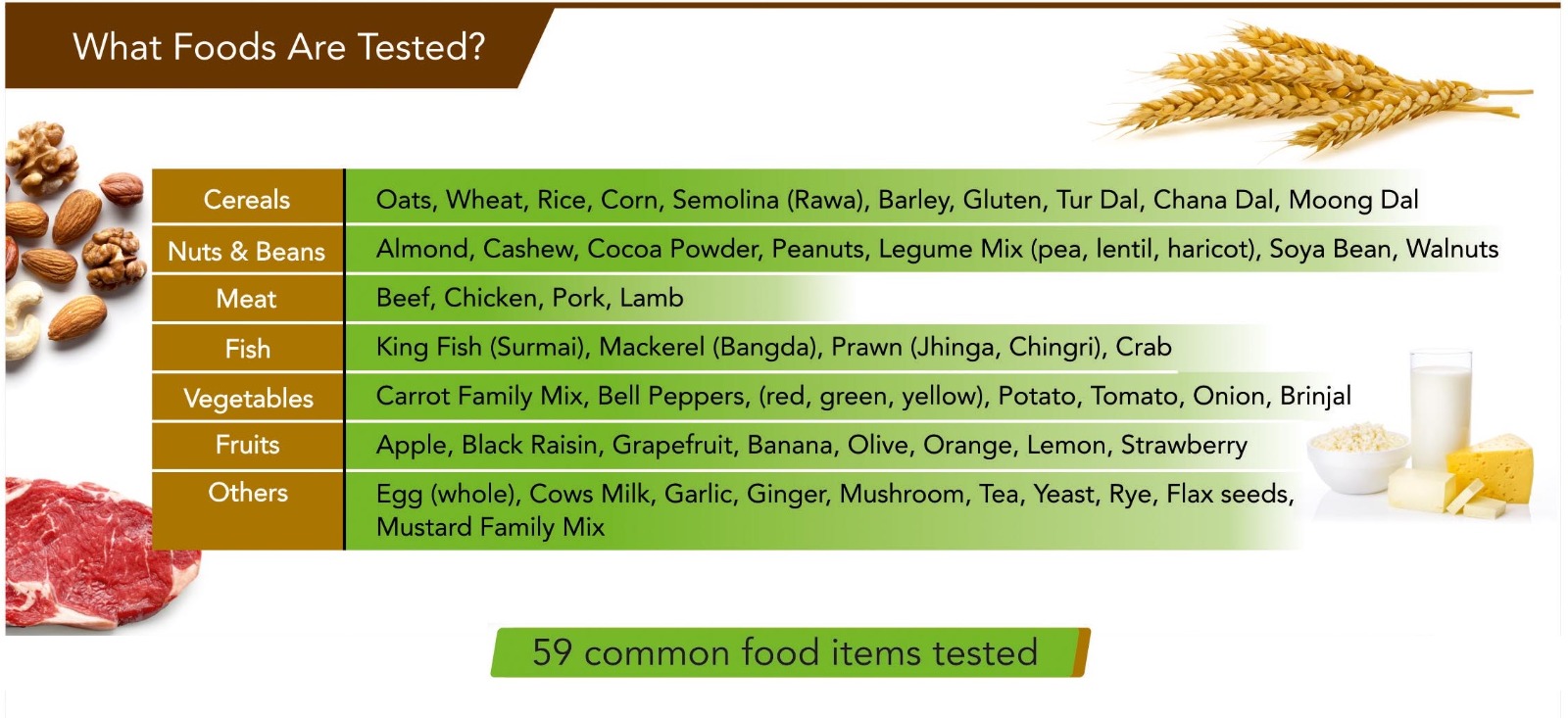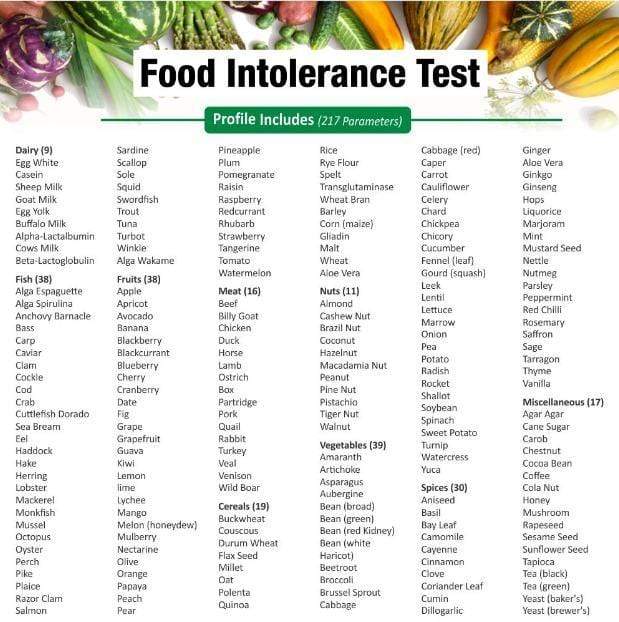



This comprehensive food intolerance test measures your IgG reactivity to 58+ foods and drinks . Helping you find possible triggers for symptoms like IBS, headaches, bloating, acidity, constipation, weight issues, tiredness or any stomach related issues.
Eating the wrong food that do not suit your body type could be the trigger. Get tested today to find food items that do not suit your body
Food Items Included:
58 +
Home
Sample
Collection
FREE Report
Counselling
Test booked so far:
14164+
Report Time: 3 to 5 working days
Fasting Time: Not required
Test Recommended for: Male, Female
Test Booked So Far 5-99 Years
70% of your immune system is in your gut. When you eat a food that you are sensitive to it triggers an IgG antibody immune response. Your body mistakes the food as a threat and works overtime to defend itself. This can lead to symptoms across the whole body – not just in your gut.
Food sensitivities have been linked to everything from IBS, bloating, and weight changes through to headaches, skin conditions, and fatigue
Symptoms can take up to 3 days to appear, and multiple foods or drinks can be involved in a reaction. This makes it almost impossible to guess which ingredients are causing you problems without testing.
Taking a food intolerance test allows you to accurately identify the foods triggering an IgG response. You may then choose to safely trial removing your high reactivity foods from your diet, which may help to reduce immune load and contribute to gut healing.
Thousands of people have seen success following this test:

Select a convenient date and time for the blood test

Get your samples collected from home

Receive an easy to understand smart report within 3 to 5 working days

Consult our nutritionist to get a detailed diet plan based on your test resuklts

Food Intolerance test
No. We can do tests with the pre set panels
A food allergy affects the immune system, where even a small amount of that food triggers a range of severe symptoms, which can even be life threatening in some cases. A food intolerance, on the other hand, usually only affects the digestive system and causes less serious symptoms (eg: lactose intolerance).
If you feel like you have certain symptoms that may be related to food, eg: uneasiness after meals, bloating, nausea, headaches/indigestion after consuming certain foods, this test is for you. We cover an extensive range of foods that could potentially trigger such a response in your body.
This is a test that helps measure your body’s immune response to certain foods. A higher than normal IgG reactivity could indicate a possibility that your symptoms could be caused by a specific food. The test will categorise foods into “elevated”, “borderline” and “normal” based on the antibody reaction that was detected. Our nutritionist can then work with you to tailor a diet plan for you accordingly.
It is occasionally observed that patients react to foods that they are convinced they have never eaten. Although not unusual, it is not attributable to a false positive result, but instead a 'cross-reaction' with another food. Some foods contain identical antigens (food proteins), even though they are not related to each other and/or do not belong to the same food group. These identical food proteins will be detected by the same antibody, thus producing an ELEVATED result. The food we eat often contains ingredients which we are unaware of, especially if it is highly processed, and so we may be consuming foods such as Agar Agar on a daily basis and this could be the reason for a reaction when the Food Intolerance test is done.
The Food Intolerance IgG antibody test is based on the immune systems ability to produce antibodies in response to certain foods. If a food has been avoided for more than 3 months, it is likely that IgG antibody levels will be insufficient To be detected by the test and may give a NORMAL result. To test intolerance to a certain food, It should be included in the daily diet, or at least every other day, for 4-6 weeks before testing. However, if the food concerned is known to cause extreme symptoms/discomfort, do not reintroduce it
If, after changing your diet according to the test results, improvements have not been achieved after 3 months, food intolerance is unlikely to be the cause of your symptoms and other investigations should be undertaken. Results of the Food Intolerance IgG antibody test are intended as a guide to diet alteration only and should be complementary to advice from a healthcare professional.
Same foods may cause a classic allergic reaction involving the production of IgE antibodies (Type l allergy). These will not be detected by the Food Intolerance test as it detects igG antibodies. There are also many foods that can cause a reaction in the body without involving the immune system, but produce symptoms similar to IgG reactions amines found in chocolate, cheese and red wine may cause migraines; some food additives such as tartrazine, can trigger hives, rashes and asthma; monosodium glutamate (MSG) found in restaurant/take-away food can produce sweating and dizziness; Nightshade alkaloids in potatoes, tomatoes and peppers may affect the joints. Food intolerance may also be due to a deficiency of a particular enzyme, such as in lactose intolerance. Avoid foods if you suspect they are causing adverse affects.